Why tech giants are the number one target on Capitol Hill
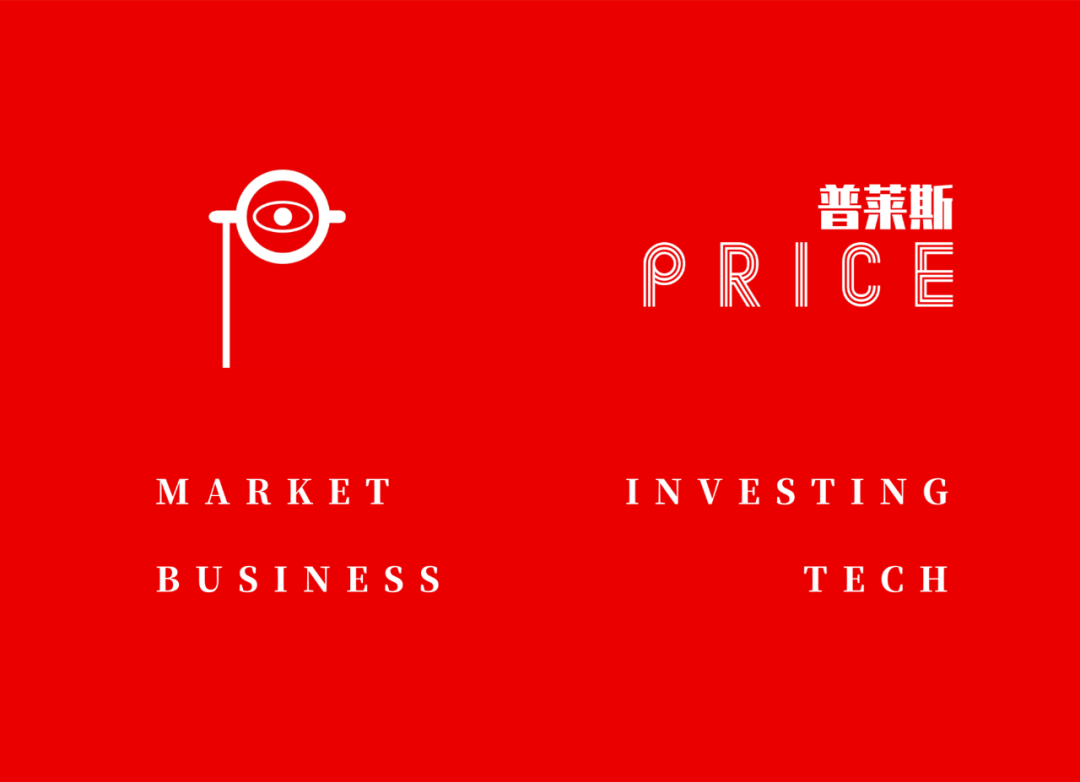
After a 16-month investigation into the monopolies of some of the nation's largest technology companies, Democratic lawmakers laid out their findings in a 449-page report this week. They conclude that Apple, Amazon, Facebook and Google have monopoly power and need to be controlled, whether that means splitting up the companies, blocking future acquisitions or forcing them to open their platforms.
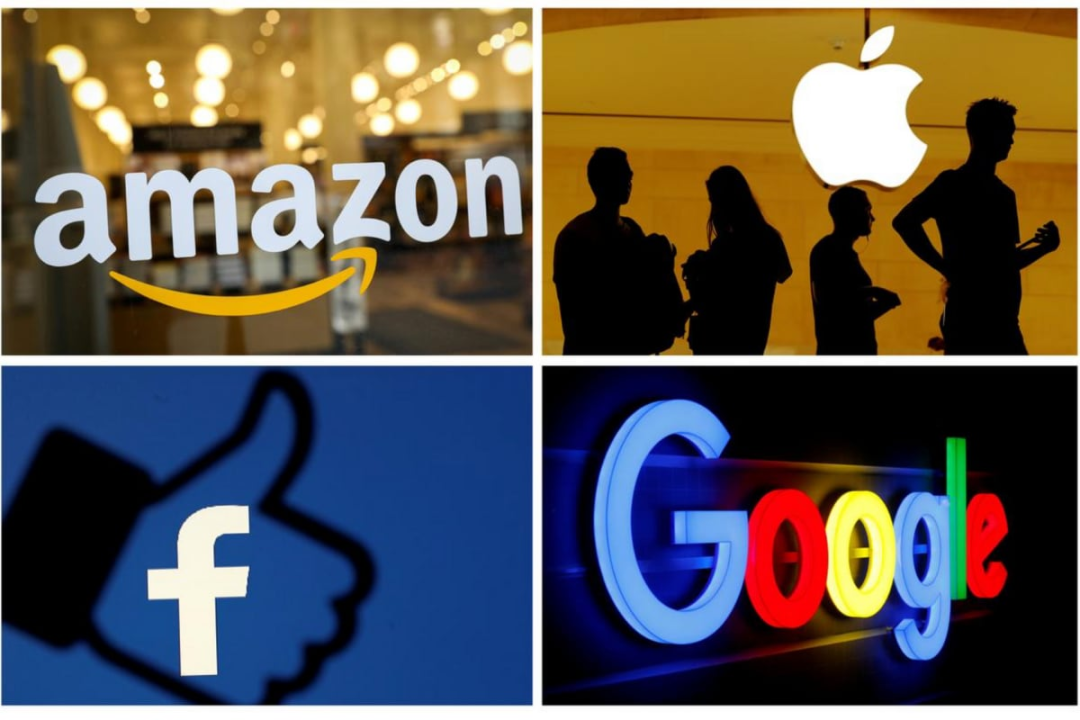
Wall Street shrugged off the news.
Three of the four stocks rose the day after the report was released, reflecting investors' long-held view that regulators and politicians could not stop big technology companies from continuing to rise and expand their market share.
Still, lawmakers clearly haven't solved the problem.
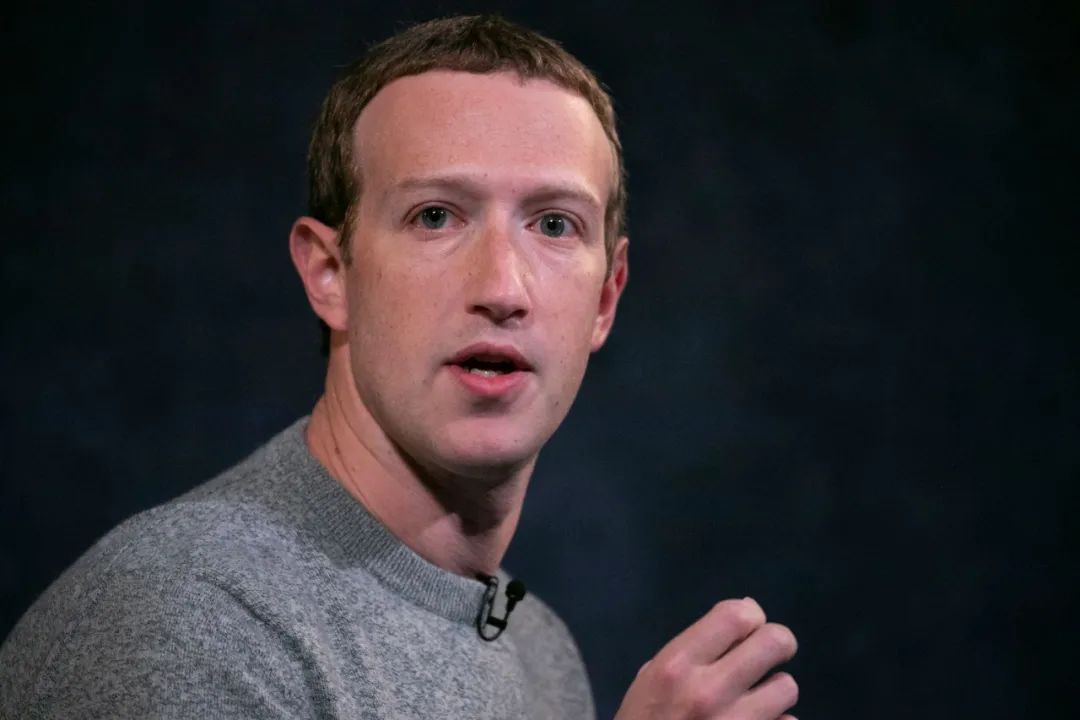
With less than a month to go until the November 3 election, Joe Hockey's campaign Joe Biden is well ahead in the polls, and tech companies face the possibility that Democrats will control both the White House and Congress in 2021.
If Democrats win the Senate, then Elizabeth Warren and Bernie Sanders will be in the Senate. Sanders, who is the biggest supporter of the big tech companies, will be the majority.
Here's what Warren said in early 2019:
"Today's big tech companies have too much power - too much control over our economy, society and democracy. They hinder competition, use our private information for profit, and make the market competitive environment unfavourable to others. In the process, they hurt small businesses and stifle innovation. "
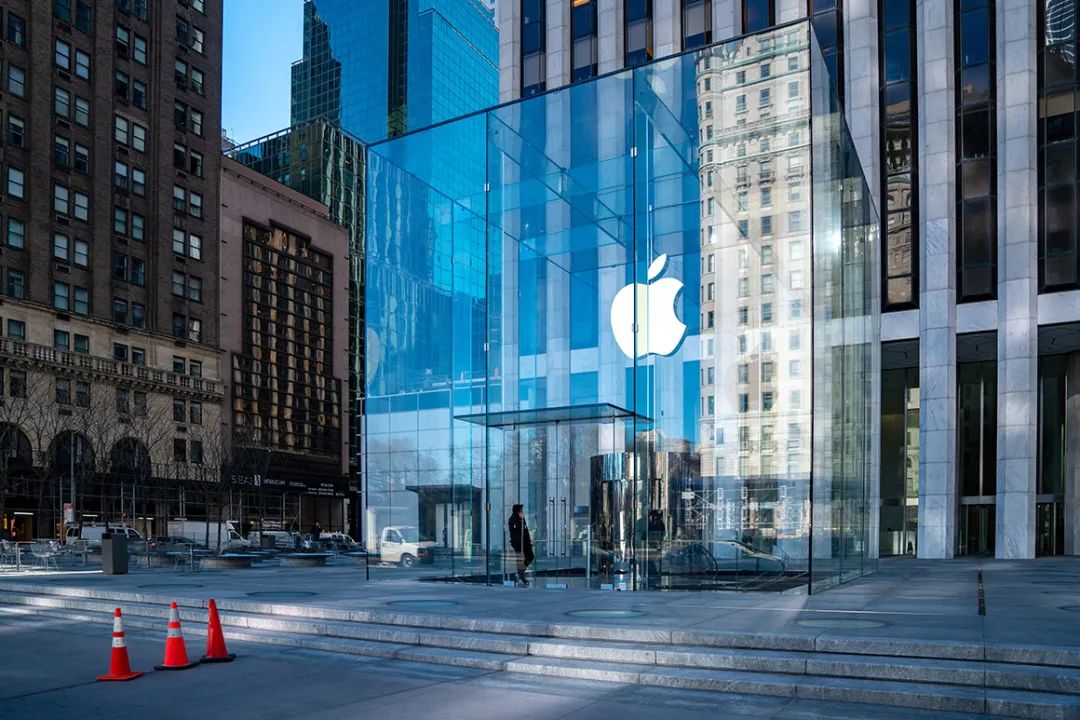
How did this happen?
Just 10 or 20 years ago, big technology companies were seen as innovators, young industry disruptors focused on making life easier for consumers.
How can they now become the counter-example of American business, with every move being questioned at the highest levels of government?
We don't have a unified answer to that.
But here are some of the big events in science and technology in recent years.
Appreciation and integration
Five years ago, Apple, Amazon, Google, Microsoft and Facebook were among the world's most valuable companies, worth $2 trillion. Today, that figure is more than $7 trillion, more than three times what it has been in the past five years, and the Standard and Poor's 500-stock index is up just 73% over the same period.
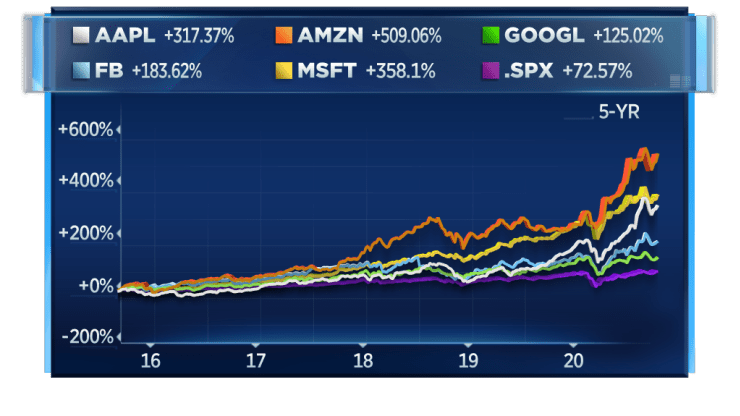
By far the top five tech giants are the most valuable companies in the U.S., now accounting for more than a fifth of the total market capitalization of the Standard and Poor's 500 index and a 46% share of the Nasdaq 100.
Despite Microsoft's growing market capitalisation and influence, U.S. lawmakers have largely decided to let Microsoft go as they investigate anti-competitive behavior by big tech companies.
What they see in the other four companies are those that exclude competition, exploit consumers, blackmail partners, or collect large amounts of user data. Actually, they've all done it.
Large-scale market value appreciation and consolidation is the result of revenue growth, profitability and investor expectations, i.e. nothing can challenge the dominance of these companies. Trillions of dollars in valuations and huge profit margins have also contributed to a self-perpetuation cycle: tech giants have such high equity values and large cash reserves that they can easily suppress smaller industry players.
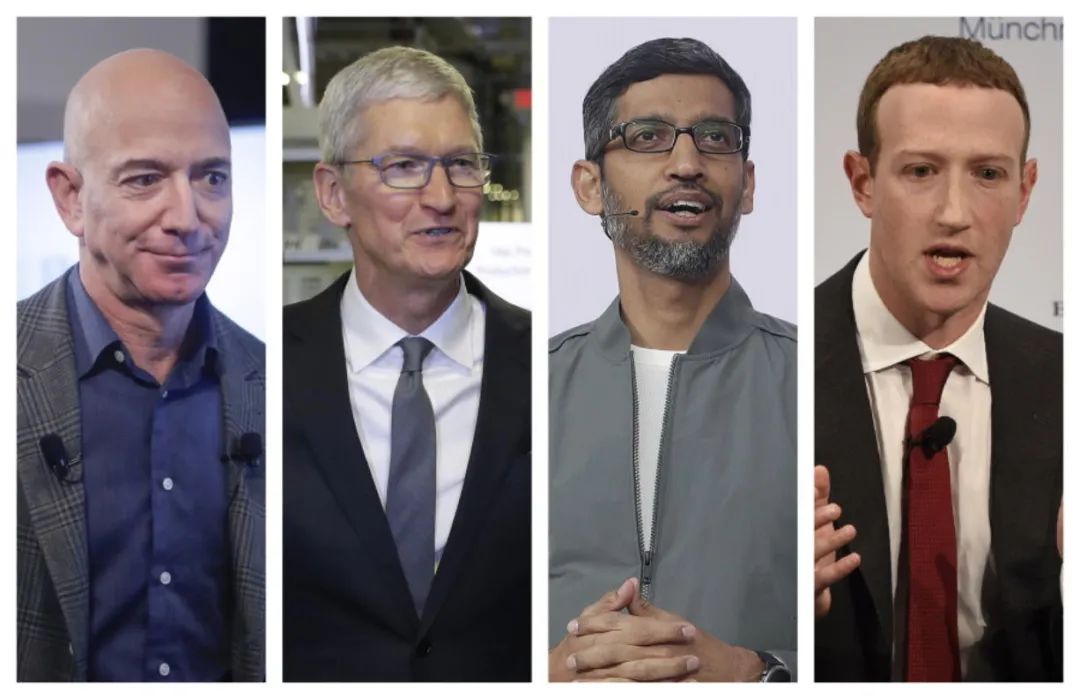
Despite a history of market dominance and overvalued companies, today's difference is that the tech industry has become a self-retention ground for all of them, and they've been able to keep their water from flowing out of the world.
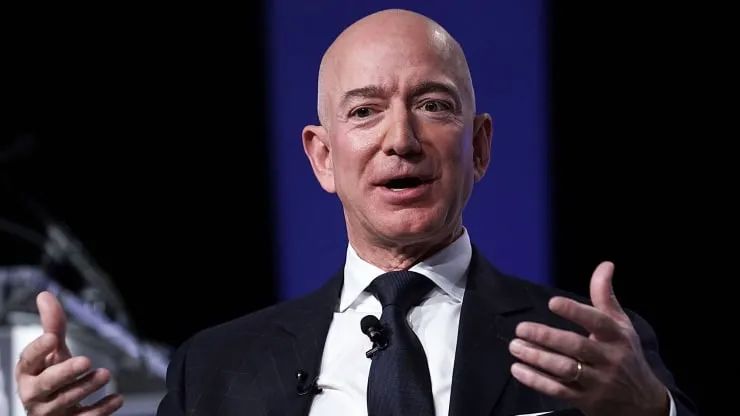
Amazon's ambitions
Amazon has gone from being a store with everything to a company with everything.
Their aversion far outweighs its original e-commerce roots, and Amazon is now a major player in cloud computing infrastructure, new media, consumer hardware, groceries, payments and advertising, and has big ambitions in healthcare and other industries.
Although Amazon's annual revenue is expected to reach $350 billion, it has maintained steady revenue growth, and its cloud computing business has recently begun to generate huge profits.
In April 2015, Amazon began reporting its financial position and disclosed that it was making about $1 billion a year, or that the entire company was in a break-even or loss-making state, and that the size of Amazon's business had become clear for the first time.
In other words, while everyone thinks Amazon is an e-retailer with a good side business in cloud computing, it quietly builds a big, profitable software business.
Last year, AWS made $35 billion in sales and more than $9 billion in profits, making it the third-largest software company after Microsoft and Oracle.
Then, after helping fuel years of decline in brick-and-mortar retailing, Amazon jumped into the brick-and-mortar world, buying upscale food supermarket Whole Foods for $13.7 billion in 2017.
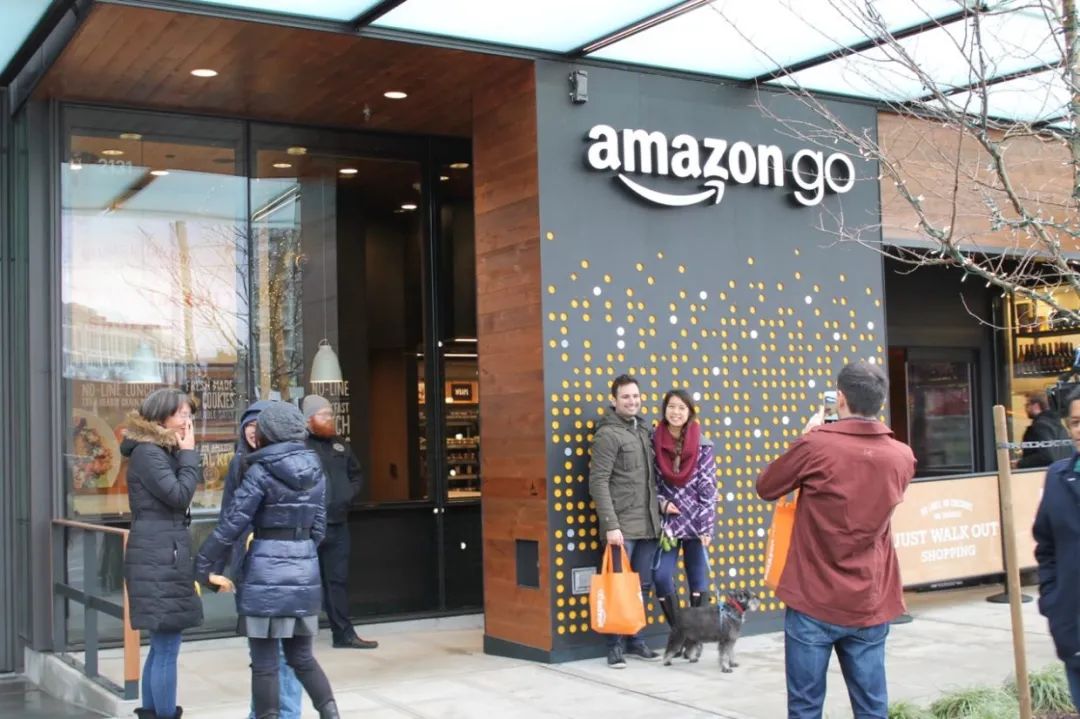
Amazon's physical economic footprint also includes its unparalleled network of distribution centers and last-mile distribution facilities.
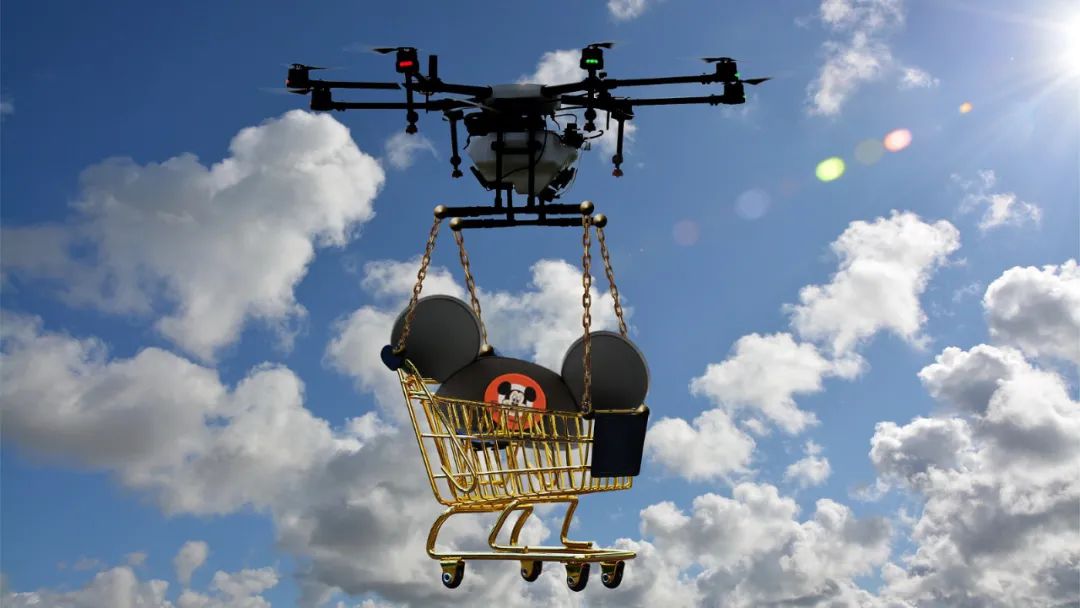
And Amazon, now the second-largest employer in the U.S., continues to aggressively hire social workers in the broader recession caused by the new crown virus pandemic.
Amazon angered lawmakers in 2017 when it sought a proposal to build its next headquarters and asked cities to provide subsidies in an attempt to get U.S. cities to fight each other in bidding.
In the end, Amazon chose two cities - New York and Washington, D.C. - but pulled out of New York at the last minute because of strong opposition from some locals.
Amazon CEO Jeff Sessions. Bezos's eccentricity and ambition created the company's myth.
Bezos also spends billions of dollars a year on blue origin, his private space travel company.
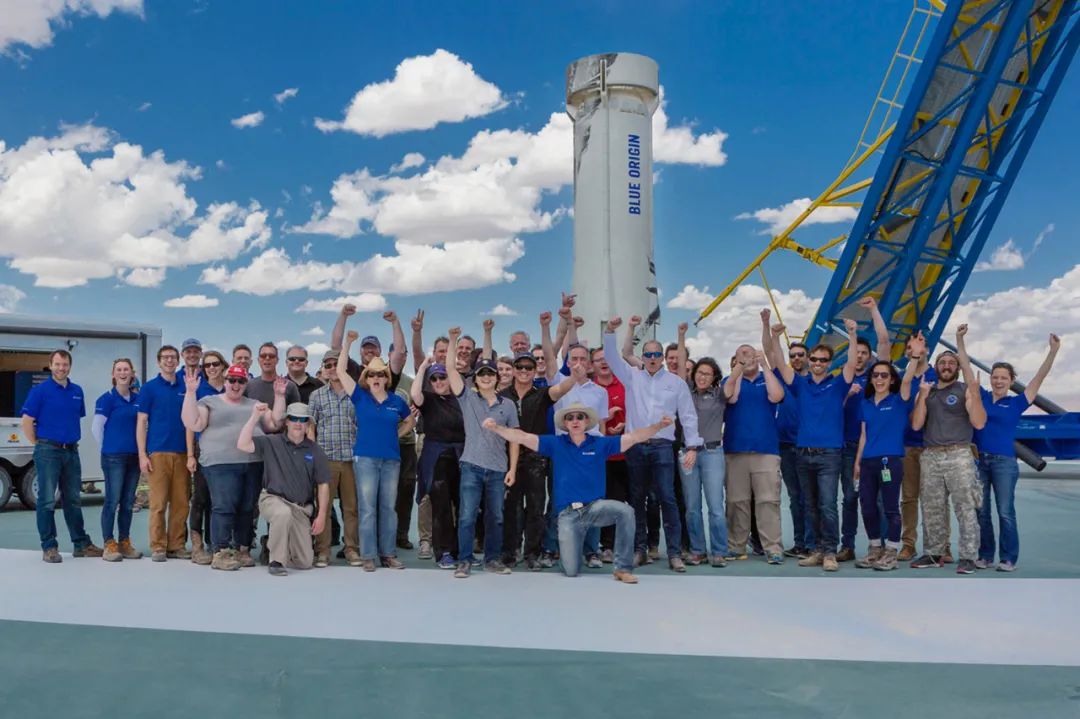
His acquisition of the Washington Post in 2013 gave him an influential voice in the national media (though he does not exercise editorial oversight), and the Washington Post has often criticized Mr. Trump as both a presidential candidate and a president.
In 2017, Bezos became the richest man in the world.
In 2019, he publicly questioned a tabloid that had threatened to publish details of Bezos' affair.
While investors welcomed Amazon's growth, politicians from both parties have recently denounced the company's unbridled expansion, including its uncontrollable market behavior and so-called anticompupany tactics.
The call to spin off Amazon peaked this summer when chief executive Bezos first appeared before Congress to answer questions about Amazon's market power and business practices.
Google and Facebook are all about the advertising industry
For more than a decade, Facebook and Google have reinvented the advertising world.
Last year, the two companies' total advertising sales reached $232 billion, a nearly 10-fold increase from 2009.
EMarketer says it has been using the term double-headed monopoly since 2017 to describe the situation, but the trend has been clearly seen by the advertising industry before.
As of 2016, the two companies controlled 57.9 percent of the U.S. digital advertising market, according to eMarketer's own data.
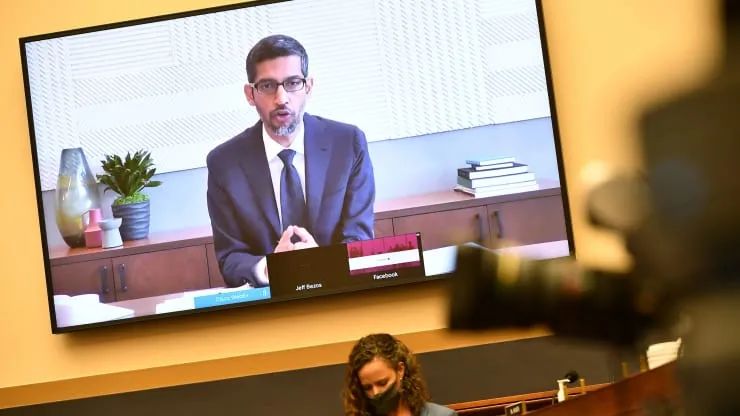
By late 2019 estimates, that proportion had exceeded 60 per cent.
Meanwhile, advertising revenue in traditional news has plummeted from $38 billion in 2008 to $14 billion in 2018.
In a letter to the Justice Department this year, the Press Alliance argued that Google had been using news content for years to increase its weight and make money from actual content providers.
It's not just the news industry that's hurting. The World Center for Advertising Research (WARC) predicted earlier this year that advertisers around the world would spend more on Google and Facebook than on television ads.
The third-largest U.S. digital advertising company is now Amazon, so that's indisputable for regulators.
This year, a large number of leading marketers suspended spending in support of the Stop Hate For Profit campaign to force Facebook to take steps to stop hate speech and mis-information from spreading on the site.
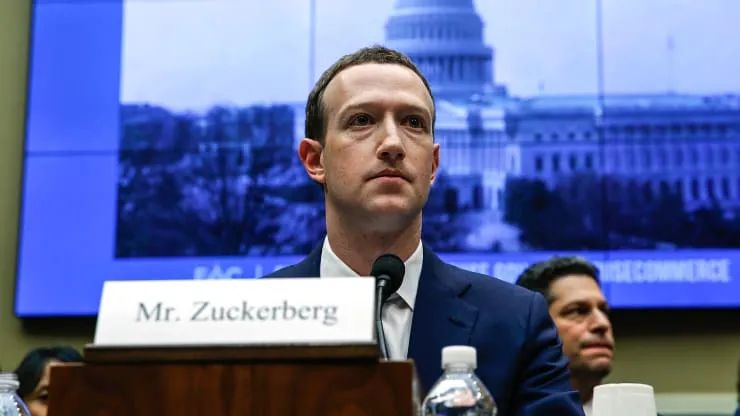
This highlights the dependence of most businesses on Facebook. Some of these advertisers say they want to stop spending on Facebook permanently, but they can't afford to go so aggressive or choose to bow to their interests.
Facebook: Freedom of speech and democracy
After Trump was elected president in 2016, CEO Mark R. Zuckerberg's first public appearance was quick to dismiss suggestions that his company played a big role in the election results.
"Personally, I think fake news on Facebook is a small part of the page, saying we influenced the election in a variety of ways - I think it's a pretty crazy idea," Zuckerberg said.
Zuckerberg was quickly proved wrong.
In April 2017, Facebook released a case study confirming that outside groups had tried to use its social network to influence the outcome of the 2016 election.
In February 2018, a federal grand jury indicted 13 Russian citizens, and an FBI report detailed how they used Facebook and Twitter to wage an "information war" against the United States and "pick a fight" in the U.S. political system to help Trump win.
In 2018, reporters for The New York Times and the Observer revealed that Cambridge Analytica, a consulting firm, improperly obtained data from 50m Facebook users (later revised to 87m) and used it to try to persuade potential voters to back Mr Trump.
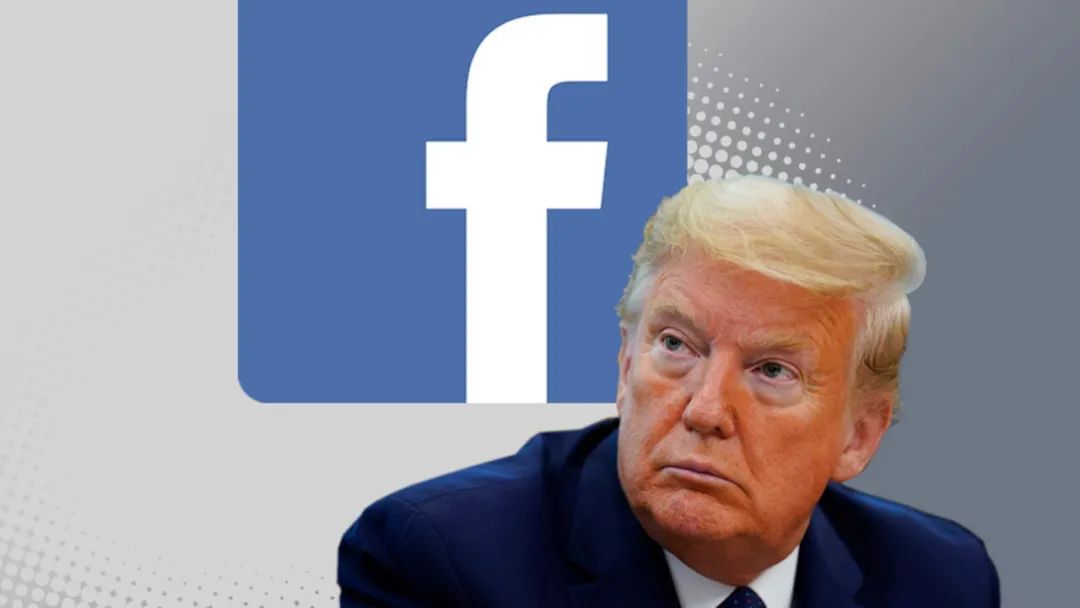
Around the same time, U.N. investigators determined that Facebook played a decisive role in the genocide of Rohingya Muslims in Myanmar.
The Chairman of the United Nations Independent International Mission on Myanmar, Mazuki Al-Ma Marzuki Darusman, chief executive, said: 'If you will say so, Facebook's inaction has essentially exacerbated the shruar, division and conflict within the public. "
Clicks are rising as government agencies begin to delve into Facebook's practices.
In December 2018, the British Parliament released 250 pages of internal Facebook documents that give insight into the company's next three-part strategy against rivals.
In one case, Zuckerberg instructed his employees to cut Twitter's connection to Facebook at Vine as a way to stop them from streaming on the service.
Earlier this year, as part of his presidential campaign platform, Senator Warren proposed splitting Facebook, possibly Instagram and WhatsApp.
In May 2019, Facebook co-founder Chris Hughes responded to Warren's comments.
"Facebook's biggest right issue is Mark's unilateral control of speech," Hughes wrote. "His ability to monitor, organize, and even censor conversations with 2 billion people is unprecedented."
In June 2019, the U.S. Federal Trade Commission launched an antitrust investigation, and a few months later, state attorneys general and the Justice Department launched an investigation.
Last November, California Attorney General Xavier J. Xavier Becerra revealed that his state had also launched an investigation into Facebook the previous year.
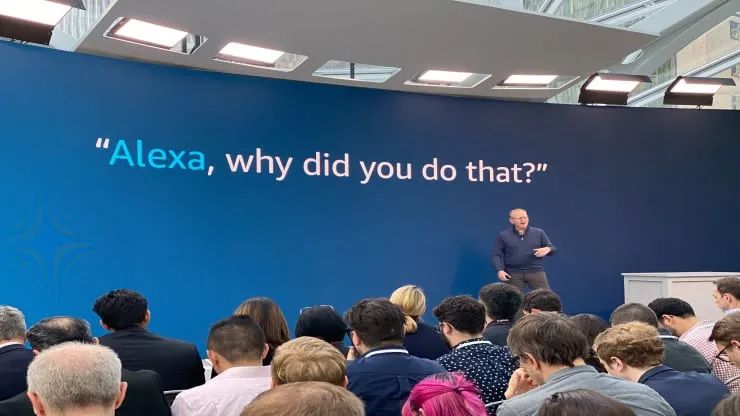
The tipping point for guarding privacy
Consumer data is the cash machine for Internet companies.
More and more Americans, when they look around them, can only see or hear Google, Facebook and Amazon in every corner.
The 2018 Facebook-Cambridge Analytica scandal may be the biggest wake-up call, but perhaps for the first time it's Edward M. Snowden leaked details of the NSA's wiretapping of U.S. phones.
Consumers who believe that communication networks provide the same privacy as private conversations are finally realizing that this is not the case.
In 2018, a local Seattle television network reported that a Portland family accused their Amazon Alexa device of recording a private conversation and sending it to a random contact.
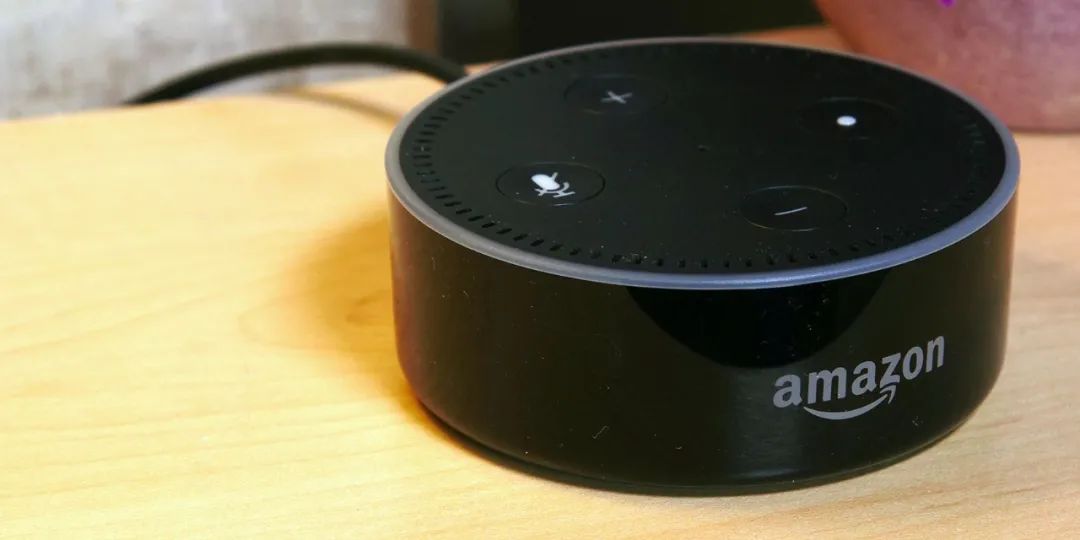
Amazon called the incident "extremely rare" and said it happened because the device interpreted what the family said as "an order to Alexa" and then followed it.
For years, Facebook users have accused them of eavesdropping on conversations through their apps.
Otherwise, how can Facebook or Instagram know what they're talking about and push ads in real-world conversations?
While Facebook has repeatedly stressed that it does not violate users' privacy, such behavior only suggests that their advertising algorithms are scaryly good.
Privacy has been a particularly resonant issue this year in the national debate over excessive police use of force and concerns about government surveillance.
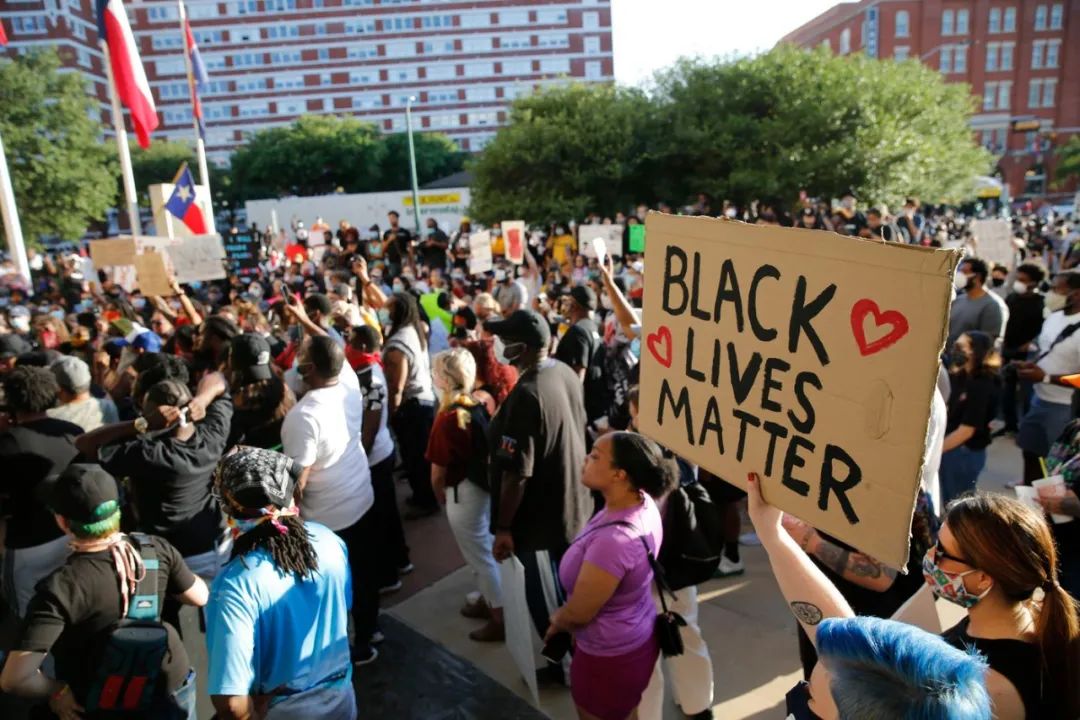
Ring, Amazon's doorbell company, has been criticised for its cooperation with the police.
Both Amazon and Microsoft have bowed to pressure to declare that their facial recognition software is not being used by the police.
Congress has agreed on the need for a national digital privacy law to protect Americans from new technologies.
At the same time, Americans are constantly handing over their data.
There is still a long way to go
The congressional report doesn't mean big tech companies will fall apart this year or in the short term.
Instead, the report aims to make a broad recommendation to Congress to reshape antitrust laws beyond the narrow scope of current price and competition protections to "employees, entrepreneurs, independent businesses, open markets, fair economies and democratic ideals."
Meanwhile, the U.S. Department of Justice, the Federal Trade Commission and other federal and state governments are investigating issues facing large technology companies, from labor benefits to privacy to fair competition.
But these cases could take years to complete, and as Microsoft's experience in the 1990s and early 2000s showed, these companies can accept huge fines without causing lasting damage - and in July 2019, after the Federal Trade Commission fined Facebook $5 billion for privacy lapses, Facebook's share price rose, suggesting that investors don't care about the penalties, which would also give tech giants confidence.
Still, even in an election year, the fact that Congress has issued a 449-page indictment denouncing big technology companies shows that attitudes in Washington have changed dramatically.





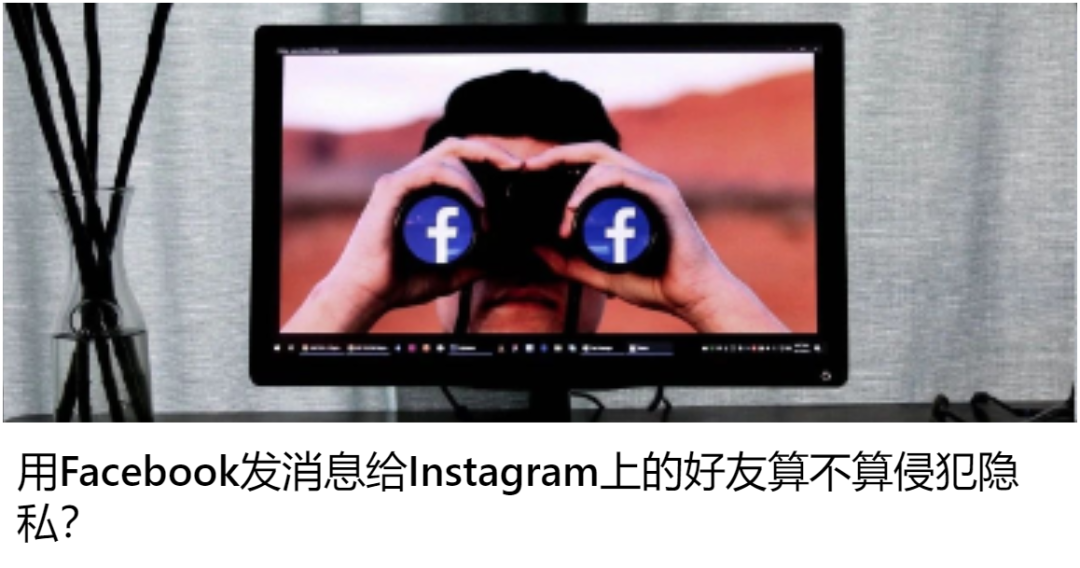
Go to "Discovery" - "Take a look" browse "Friends are watching"